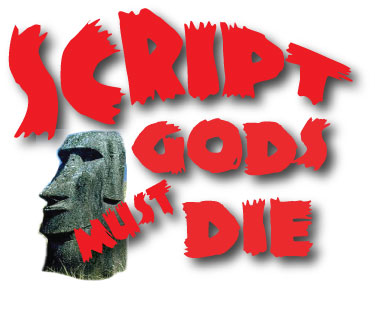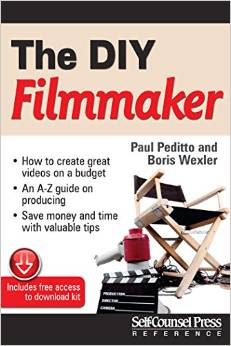“Working as a screenwriter, I always thought that ‘Film is a collaborative business’ only constituted half of the actual phrase. From a screenwriter’s point-of-view, the correct rendering should be ‘Film is a collaborative business: bend over.”–David Mamet
I had a chance to work with two of David Mamet’s favorite actors, Jack Wallace and J.J Johnston. When they talked, I could hear Mamet– his cadences, his f-bombs, the stylized speed. How many writers have a “school” based on them? Shane Black? Tarantino? Pinter?
Let’s get this out of the way: I’m a groupie, sure. I’m a Chicago playwright living in this town for 25 years–who else compares? David Mamet is not just the greatest playwright of his era, he is the greatest writer to come out of Chicago in my lifetime (yeah, that takes us back to the Kennedy era).
44 IMDB writing credits, a bunch of them adaptations of his own plays (Oleanna, Edmond, American Buffalo, Sexual Perversity In Chicago, Glengarry Glen Ross). There are his screenplays too (House Of Cards, The Untouchables, The Verdict, Wag The Dog)…classic stuff in so many of these, like this speech from Glengarry, which isn’t even found in the play version, and which I could certainly recite word-for-word from memory.
Or this snippet between Alan Arkin and Ed Harris. Listen to the speed of this, the unfinished thoughts, the overlapping dialogue, the stylization. This isn’t realistic dialogue, it’s the approximation of realistic dialogue. “What can you do? If you do not have the godamn leads…”
- TO THE WRITERS OF THE UNIT
We could pick classic riffs from Mamet’s work all day long. Being as our focus is writing, let’s find a couple sources you might have missed. The first is a famous five year-old memo to his writing staff on the TV show The Unit. I’d recommend reading it in full, but here are a couple samples. This is a Master Class, Drama 101:
“QUESTION:WHAT IS DRAMA? DRAMA, AGAIN, IS THE QUEST OF THE HERO TO OVERCOME THOSE THINGS WHICH PREVENT HIM FROM ACHIEVING A SPECIFIC, ACUTE GOAL.
SO: WE, THE WRITERS, MUST ASK OURSELVES OF EVERY SCENE THESE THREE QUESTIONS.
1) WHO WANTS WHAT?
2) WHAT HAPPENS IF HER DON’T GET IT?
3) WHY NOW?
THE ANSWERS TO THESE QUESTIONS ARE LITMUS PAPER. APPLY THEM, AND THEIR ANSWER WILL TELL YOU IF THE SCENE IS DRAMATIC OR NOT.
IF THE SCENE IS NOT DRAMATICALLY WRITTEN, IT WILL NOT BE DRAMATICALLY ACTED.
THERE IS NO MAGIC FAIRY DUST WHICH WILL MAKE A BORING, USELESS, REDUNDANT, OR MERELY INFORMATIVE SCENE AFTER IT LEAVES YOUR TYPEWRITER. YOU THE WRITERS, ARE IN CHARGE OF MAKING SURE EVERY SCENE IS DRAMATIC.
THIS MEANS ALL THE “LITTLE” EXPOSITIONAL SCENES OF TWO PEOPLE TALKING ABOUT A THIRD. THIS BUSHWAH (AND WE ALL TEND TO WRITE IT ON THE FIRST DRAFT) IS LESS THAN USELESS, SHOULD IT FINALLY, GOD FORBID, GET FILMED.
IF THE SCENE BORES YOU WHEN YOU READ IT, REST ASSURED IT WILL BORE THE ACTORS, AND WILL, THEN, BORE THE AUDIENCE, AND WE’RE ALL GOING TO BE BACK IN THE BREADLINE.
SOMEONE HAS TO MAKE THE SCENE DRAMATIC. IT IS NOT THE ACTORS JOB (THE ACTORS JOB IS TO BE TRUTHFUL). IT IS NOT THE DIRECTORS JOB. HIS OR HER JOB IS TO FILM IT STRAIGHTFORWARDLY AND REMIND THE ACTORS TO TALK FAST. IT IS YOUR JOB.”
The caps are Mamet’s. You might be saying– yeah, so what, tell me something new. The beauty here is the simplicity. The paragraph that stays with me is Person 1 + Person 2 talking about Person 3 DOES NOT equal drama. How many of these expositional scenes have you written, Good Reader? Me? A ton.
Further down is this tidbit:
“IF YOU PRETEND THE CHARACTERS CANT SPEAK, AND WRITE A SILENT MOVIE, YOU WILL BE WRITING GREAT DRAMA.
IF YOU DEPRIVE YOURSELF OF THE CRUTCH OF NARRATION, EXPOSITION,INDEED, OF SPEECH. YOU WILL BE FORGED TO WORK IN A NEW MEDIUM – TELLING THE STORY IN PICTURES (ALSO KNOWN AS SCREENWRITING)
THIS IS A NEW SKILL. NO ONE DOES IT NATURALLY. YOU CAN TRAIN YOURSELVES TO DO IT, BUT YOU NEED TO START.
I CLOSE WITH THE ONE THOUGHT: LOOK AT THE SCENE AND ASK YOURSELF “IS IT DRAMATIC? IS IT ESSENTIAL? DOES IT ADVANCE THE PLOT?”
Says
it
all.
- HEAR THE NOTES THAT AREN’T PLAYED
Don’t be fooled about this 2002 article in the New York Times, it’s as valid as ever. The genius here is Mamet’s relating music to writing, a direct correlation. Here’s a taste:
“People say the great genius of Nat Cole was his ability to accompany himself on the piano, that he understood that most delicate and intricate duet and its demand for spaciousness, for elegance. ”We hear it anyway.”
This is the genius of Bach, and the overwhelming demand of dramaturgy — this understanding, or its lack, divides those who can write from those who can really write: how much can one remove, and still have the composition be intelligible?
Chekhov removed the plot. Pinter, elaborating, removed the history, the narration; Beckett, the characterization. We hear it anyway.
It is in our nature to elaborate, estimate, predict — to run before the event. This is the meaning of consciousness; anything else is instinct. Bach allows us to run before, and his resolutions, as per Aristotle, are as inevitable (as they must be, given the strictures of Western compositional form) and surprising as his elaborate genius. We are thus delighted and instructed, as per Freud, in a nonverbal way, as to the varieties of perception, possibility, completion — we are made better. Our consciousness, listening to Bach, has been rewarded, refreshed, chastised, soothed — in Bach and Sophocles both, the burden of consciousness has momentarily been laid down.
Both legitimate modern drama (Pirandello, Ionesco) and the trash of performance art build on the revelation that omission is a form of creation — that we hear the third anyway — that the audience will supply the plot.”
We hear it anyway!
Damn right we do. Never forget that actors fill in the gaps with body language, with a look or glance, with how they enter a room, how they phrase a word that you can’t possibly describe on the page. You don’t want to kill the reader with exposition. You don’t want to kill subtext.
Give the audience some credit.
We get it.
We’ll hear it anyway.
David Mamet, what a racer!

